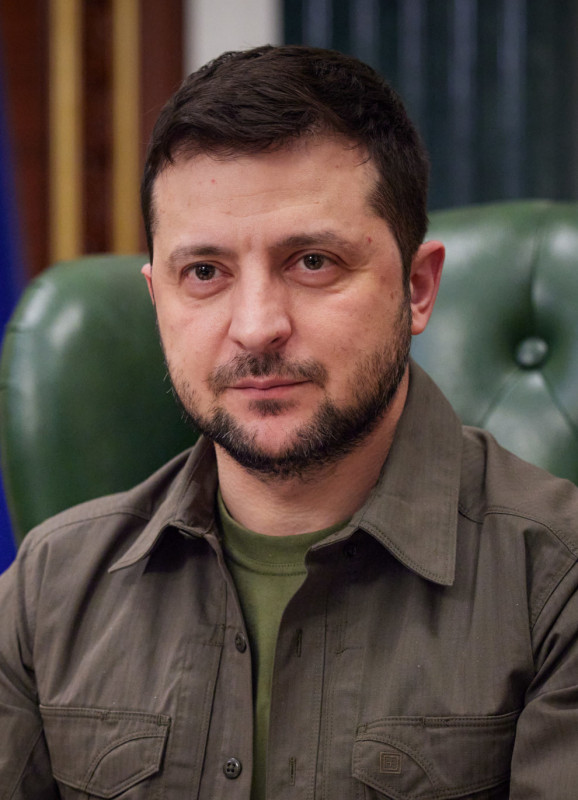A closer look at the defining struggles that shaped Volodymyr Zelenskyy's life and career.
Volodymyr Zelenskyy is the current president of Ukraine, serving since 2019. Before entering politics, he was a successful entertainer. His presidency has been largely defined by the ongoing Russo-Ukrainian War, particularly the full-scale Russian invasion that began in February 2022. He has been a key figure in leading Ukraine's response to the invasion and garnering international support.
2003: Departure from KVN
In 2003, Zelenskyy and Kvartal 95 left KVN after Zelenskyy declined a job offer and following an antisemitic incident.
2017: Svaty Banned in Ukraine
In 2017, the comedy series Svaty ("In-laws"), which Zelenskyy co-produced, was banned in Ukraine.
2018: Referendum Law declared unconstitutional
In 2018, Ukraine's Constitutional Court had declared the country's Referendum laws unconstitutional
2018: Refusal of Alleged Bribery Attempt
In 2018, Zelenskyy said that then-President Yanukovych had offered him US$100 million for political control of Kvartal 95's programmes after he became general producer of Inter, but Zelenskyy refused.
2018: "Love in the Big City 2" Banned in Ukraine
In 2018, the romantic comedy "Love in the Big City 2", starring Zelenskyy, was banned in Ukraine due to a blacklisted Russian actor.
June 2019: Rejection of Criminal Liability Initiative
In June 2019, lawmakers refused to include Zelenskyy's initiative on reintroducing criminal liability for illegal enrichment in the parliament's agenda, including a similar bill proposed by a group of deputies instead.
September 2019: Report of Trump Blocking Military Aid to Ukraine
In September 2019, reports surfaced alleging that U.S. President Donald Trump had blocked a $400-million military aid package to Ukraine to pressure President Zelenskyy to investigate Joe Biden and his son Hunter Biden, who held a board seat at Burisma Holdings. This event sparked the Trump-Ukraine scandal and subsequent impeachment inquiry. Zelenskyy denied being pressured and stated he didn't want to interfere in a foreign election in September 2019.
October 2019: Preliminary Deal with Separatists
In October 2019, Zelenskyy announced a preliminary deal struck with separatists, under which the Ukrainian government would respect elections in the region in exchange for Russian troop withdrawal. The deal was met with heavy criticism and protests.
2019: Transfer of Shares and Election Campaign
Around the time of his election in 2019, Zelenskyy handed his shares in a key offshore company over to Serhiy Shefir, but arrangements were made for Zelenskyy's family to continue receiving money from these companies. His 2019 election campaign had centered on pledges to clean up the government of Ukraine.
2019: Concerns over Zelenskyy's links to Kolomoyskyi
During the 2019 campaign, concerns were raised over Zelenskyy's links to the oligarch Ihor Kolomoyskyi.
2019: Electoral System Reform Proposal Rejected
In 2019, Zelenskyy's proposal to change the electoral system to proportional representation with closed party lists was rejected by the Ukrainian parliament, due to concerns about increased government corruption.
January 2020: Lack of Answers Regarding Oman Visit
On 17 January 2020, Minister of Foreign Affairs Prystaiko was unable to give answers in parliament about the visit's official agenda, the invitation from Oman, officials of the Ministry of Foreign Affairs who were preparing the visit, as well as how the president actually crossed the border while visiting Oman.
January 2020: Ukraine International Airlines Flight 752 Plane Crash
On 8 January 2020, Volodymyr Zelenskyy cut short his trip to Oman due to the Ukraine International Airlines Flight 752 plane crash in nearby Iran. Rumors also began about potential additional meetings Zelenskyy may have had in Oman.
March 2020: Honchurak's Resignation as Prime Minister
In March 2020, Honchurak resigned as prime minister following the leak of an audio recording in which he appeared to belittle Zelenskyy's economic management, and Denys Shmyhal was appointed as his replacement. Honchurak's departure caused disquiet both in Ukraine and abroad.
September 2020: Approval Ratings Fall
By September 2020, Zelenskyy's approval ratings had fallen to less than 32 percent.
2020: Media Law Reforms Proposed
In 2020, Zelenskyy's party proposed reforms to Ukraine's media laws to increase competition and reduce the dominance of Ukrainian oligarchs, but critics argued it risked increasing media censorship through its clause on criminal responsibility for the distribution of disinformation.
June 2021: Bill Creating Public Registry of Oligarchs Submitted
In June 2021, Zelenskyy submitted a bill to the Verkhovna Rada creating a public registry of Ukraine's oligarchs, banning them from privatizations and political contributions. While supported in principle, critics worried about concentrating power in the president and the register's effectiveness.
September 2021: U.S. Trip, Meetings, and Assassination Attempt on Aide
In September 2021, during a trip to the United States, Volodymyr Zelenskyy held talks with U.S. President Joe Biden and other high-ranking officials. He also participated in the opening of the Ukrainian House in Washington, D.C., met with Apple CEO Tim Cook, spoke at Stanford University, and engaged with Ukrainians in Silicon Valley. While still in the U.S., an assassination attempt occurred on his aide, Shefir, in Ukraine, although Shefir was unharmed in September 2021.
October 2021: Approval Rating
By October 2021, Zelenskyy's approval rating had fallen further to 24.7%, but was still above or on par with most of his predecessors' at the same point in their presidencies.
November 2021: Accusations of Coup Plot
On 26 November 2021, Volodymyr Zelenskyy accused Russia and Ukrainian oligarch Rinat Akhmetov of backing a plan to overthrow his government.
December 2021: Call for Preemptive Action Against Russia
In December 2021, Volodymyr Zelenskyy called for preemptive action against Russia amid rising tensions.
2021: Escalation of Tensions with Russia
In 2021, Zelenskyy's administration faced an escalation of tensions with Russia, leading up to the full-scale invasion in February 2022.
January 2022: Appeal to Avoid Panic
On 19 January 2022, Volodymyr Zelenskyy released a video message urging Ukrainian citizens not to panic and appealing to the media to be "methods of mass information and not mass hysteria."
February 2022: General Mobilization and Ban on Men Leaving Ukraine
In February 2022, Volodymyr Zelenskyy ordered a general military mobilization and banned men aged 18 to 60 from leaving Ukraine.
March 2022: Visit from European Prime Ministers and Deepfake Disinformation Attack
On 15 March 2022, the Prime Ministers of Poland, the Czech Republic, and Slovenia visited Kyiv to meet with Volodymyr Zelenskyy as a display of support. On 16 March 2022, a deepfake video appeared online showing Zelenskyy calling on Ukrainian citizens to surrender to Russia.
March 2022: Response to Kremlin Demands and Proposal for Security Agreement
On 7 March 2022, the Kremlin demanded Ukraine's neutrality, recognition of Crimea as Russian territory, and recognition of Donetsk and Luhansk as independent states to end the invasion. On 8 March, Volodymyr Zelenskyy expressed willingness to discuss Putin's demands, proposing a new collective security agreement with the United States, Turkey, France, and Germany as an alternative to NATO membership.
May 2022: Denouncement of Kissinger's Suggestions and Remarks on Recapturing Territories
In May 2022, Volodymyr Zelenskyy denounced suggestions by Henry Kissinger regarding ceding control of Crimea and Donbas to Russia. On 25 May 2022, Zelenskyy stated Ukraine would not agree to peace until Russia returned Crimea and Donbas. He also expressed concerns about potential losses if attempting to recapture all seized land by force.
May 2022: Duty of Ukrainian Men to Remain in Ukraine
In May 2022, Volodymyr Zelenskyy stated that Ukrainian men of conscription age had a duty to remain in Ukraine.
May 2022: Criticism of EU Leaders on Russia Energy Imports
On 30 May 2022, Volodymyr Zelenskyy criticized EU leaders for being too soft on Russia, questioning why Russia could still earn nearly a billion euros a day by selling energy.
July 2022: Mercosur Trade Bloc Refusal
On 20 July 2022, South America's Mercosur trade bloc refused Volodymyr Zelenskyy's request to speak at the trade bloc's summit in Paraguay.
2022: Call on Russians to Resist Mobilization and End to Peace Talks with Putin
Speaking about the 2022 Russian mobilization, Volodymyr Zelenskyy called on Russians to not submit to "criminal mobilization." Following Vladimir Putin's announcement of Russia annexing four regions of Ukrainian territory, Zelenskyy announced that Ukraine would not hold peace talks with Russia while Putin was president.
January 2023: Russian Forces Secure Control of Soledar
By 16 January 2023 Russian forces secured control of the town of Soledar after a battle.
October 2023: Criticism of Countries Supporting Russia
In October 2023, Volodymyr Zelenskyy criticized countries supporting Russia, saying "all those who help Russia circumvent sanctions are criminals," after the Hroza missile attack.
2023: New Law on Desertion
In early 2023, Volodymyr Zelenskyy signed a new law stating that desertion or failure to report for duty without a valid reason would result in up to 12 years in prison.
May 2024: Scheduled End of Term
Zelenskyy's term was originally scheduled to end in May 2024, but was extended due to the Russian invasion and martial law.
June 2024: Comments on China's Support for Russia
In June 2024, Volodymyr Zelenskyy said that China's support for Russia would prolong the war in Ukraine. According to Zelenskyy, Russia used Chinese diplomats to undermine the Ukraine peace summit in Switzerland.
July 2024: Criticism of Narendra Modi's Meeting with Putin
In July 2024, Volodymyr Zelenskyy criticized Narendra Modi's meeting with Putin on the same day that Russian missile strikes hit the children's hospital Okhmatdyt in Kyiv, calling it "a huge disappointment and a devastating blow to peace efforts to see the leader of the world’s largest democracy hug the world’s most bloody criminal in Moscow on such a day."
December 2024: Resisted lower conscription age
In December 2024, Volodymyr Zelenskyy resisted pressure from the Biden administration to lower the conscription age to 18 in order to replace Ukraine's battlefield losses.
February 2025: Meeting with U.S. President Trump
In February 2025, Zelenskyy met with U.S. President Trump at the White House to discuss a proposed agreement regarding extraction of rare minerals. The meeting devolved into a heated exchange, resulting in cancellations and Zelenskyy's eviction from the White House.
Mentioned in this timeline

Donald John Trump is an American politician media personality and...

Vladimir Vladimirovich Putin is a Russian politician and former intelligence...
Ukraine is a large country in Eastern Europe second in...
Facebook is a social media and networking service created in...
The United States of America is a federal republic located...

The White House located at Pennsylvania Avenue NW in Washington...
Trending

6 months ago Midvale Gas Station: Woman Arrested for Setting Boyfriend on Fire; Investigation Underway
Erika Lane Kirk is an American businesswoman and nonprofit executive who became the CEO and chair of Turning Point USA...

7 months ago Mirra Andreeva vs. Yulia Putintseva at French Open; Putintseva Advances to Second Round
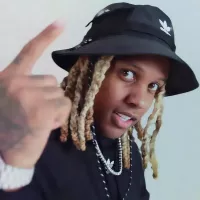
8 months ago Lil Durk faces new stalking charge; lawyers seek release, clarify case misinformation.

2 months ago Carlos Alcaraz Honored as ATP Year-End No. 1 After Finals Win
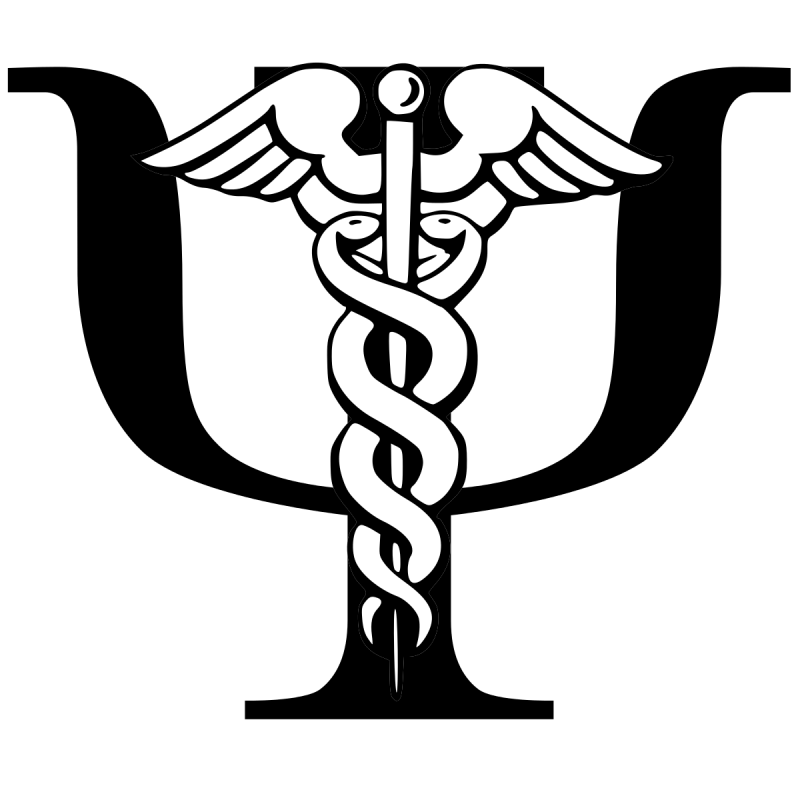
8 months ago Trump Administration Cancels $1 Billion in Mental Health Grants, Sparking Controversy.
Popular

XXXTentacion born Jahseh Dwayne Ricardo Onfroy was a controversial yet...

Stranger Things created by the Duffer Brothers is a popular...
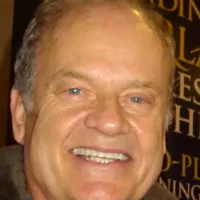
Kelsey Grammer is an accomplished American actor producer and singer...

Marco Rubio is an American politician attorney and diplomat He...

Candace Owens is an American conservative political commentator and author...
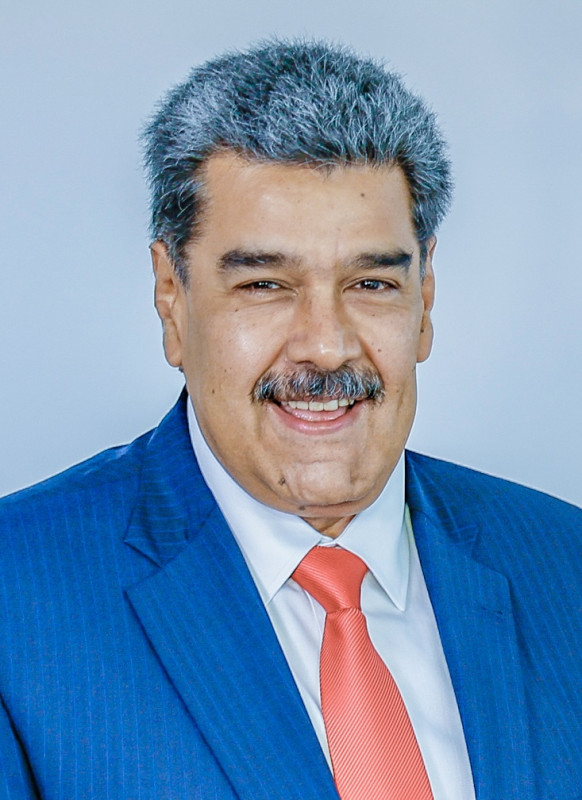
Nicol s Maduro is a Venezuelan politician who has served...
